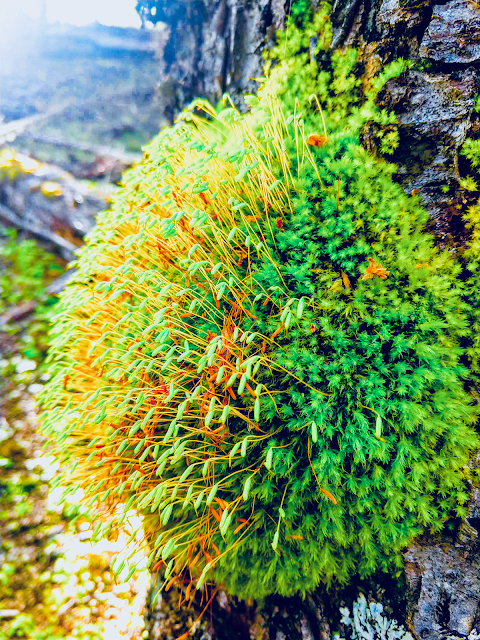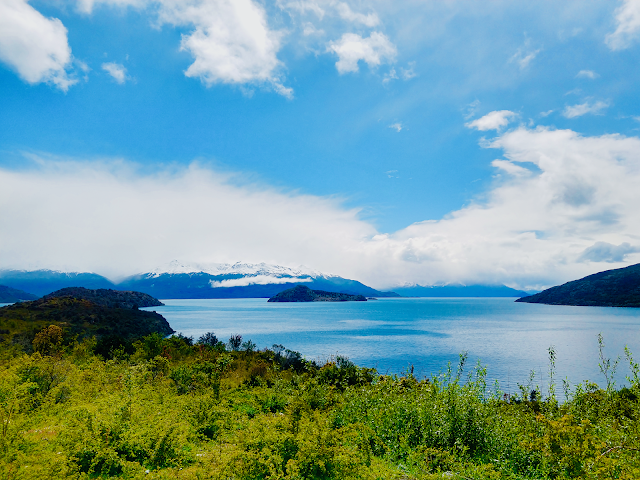The following is the product of some directed thinking that took place while I was flipping through these photos, rather than a riveting account of the adventure that produced them. I generally attempt to avoid spewing preachy hippie-dippie pseudowisdom produced at peak caffeination for y’all’s own good. But every once in a while, I make progress on a problem that has plagued me for some time, and I figure I might as well spell it out. Consider yourself warned.
This problem relates to development, a topic I stumbled on during my time in Colorado and Patagonia. Although I am certainly a fan of conservation giant Douglas Tompkins’ prolific successes in preserving native forest and public land in Patagonia, I’ve always had an icky feeling about his ideological supposition, shared by many of the conservation elite, that all environmental problems boil down to human population exceeding the ecological carrying capacity of the earth. I also hear this idea tossed around in academic circles following a detailed discussion of some local environmental problem. Although it is almost certainly the case that the current rate of population growth cannot be sustained indefinitely, the overpopulation oversimplification is often used to hide the actual problem of lifestyle choices or industrial practices that cannot be scaled to large groups of people. It is a weak, throw-up-your-hands, nihilistic regression to absurdity that attempts to justify inaction on real environmental problems because human life is inherently messy and unsustainable. In southern Chile, I often hear the suggestion from people who burn wood that other people should be avoided because they bring wood smoke. In the U.S., I hear from people who drive an automobile to work that growth brings traffic and congestion (or my personal favorite – I can never find a parking spot at the trailhead!) In both cases, folks suggest that borders should be erected – physical or financial or otherwise – to cap the number of people who call a place home. Again, I am fully aware of the detailed literature on Earth’s ecological carrying capacity, population growth etc. but we should not let this argument continue to dominate environmental discourse in such a sinister way that evades responsibility and implies everyone else is somehow disproportionately contributing to the problem. Of course, it is exceedingly difficult to lead a life that can be scaled to the nearly 8 billion people on the planet. However, it is not unreasonable to request that folks at least attempt to lead a life that can be scaled to <1 million people living in a metropolitan area. From a natural selection standpoint, the most ethical action is that which can be successfully repeated over many generations. That is to say, instead of pursuing development policies that construct barriers to entry in the neighborhood, city, state etc. we should adopt fair ‘rules of play’ supporting lifestyles that don’t get in the way of others’ ability to go about their lives, rather than descending into the stubborn exceptionalism that generally characterizes growth conversations. Instead of continuing to insist that we occupy a privileged place of car-driving and wood-burning that other people are not worth enough to occupy, maybe we could consider the idea that our current lifestyles could be incrementally improved. I’m fully aware that making transportation and heating more expensive would disproportionately hurt poorer folks. However, from a fundamental economic perspective, car-driving and wood-burning are only the cheapest options because they rely on unquantified ‘negative externalities’ to maintain their cheapness. In the case of cars, some of these negative externalities are vehicle emissions that are proven to cause cancer, lung disease, and asthma; constant casualties from traffic accidents; and reduced quality of life for just about every living creature, including the one in the car (see the Atlantic’s ‘The Absurd Primacy of the Automobile in American Life’ for a detailed analysis). In the case of wood-burning, some of these negative externalities include cancer, lung disease, and asthma; as well as rapid destruction of all nearby forests. Next time you think about reducing your thought process down to ‘there are just too many people,’ make sure you’ve considered every possible alternative lifestyle choice that could be more efficiently scaled to your neighborhood, city, state, or country.
Thursday, November 22, 2018
Please don't wake me (no, don't shake me)
I often compare this experience to a night when I struggle to get to sleep, but after falling asleep have extraordinary dreams and never want to wake up. I have indeed lived dreams and achieved long term life goals in Patagonialand, to the extent that I am having trouble identifying what the next steps might look like. This is inspiring and liberating (the Fulbright dominated my energy for the last 2.5 years!), but the undefined future comes with an element of chaos, pure unrealized potential waiting to be transformed into reality. I owe y’all a thorough discussion of the results of my project in my ‘professional’ blog that I have mostly abandoned, but here I will briefly summarize some personal successes and failures. I will not hesitate to admit that the wood smoke pollution in Coyhaique threw me off guard, in a way that cast a shadow on the rest of my time and challenged my ability to live up to the cultural exchange component of the Fulbright. Conscious of this risk, I actively sought out opportunities to share my work with the community, and my informal collaboration with the local water authority provided a sustained platform for exchange. My adviser recently affirmed, ‘you were no hermit,’ and ‘you lived up to the spirit of the Fulbright.’ That said, I all but prevented the possibility of sustaining close personal relationships by living so far from the city with limited transportation. I don’t really need much (I score very low in extroversion on personality tests), but sometimes it is nice to chat with other young, childless folks on the odd sunny evening. I actively chose my short- and long-term physical health over a regular social life, and I don’t regret that choice. In recent weeks, the director of the research organization I worked with invited me to come back after I finish my PhD, my colleagues have expressed continued interest in collaborating, and my contacts at the local water authority have plans to apply for funding to run with the ideas that I developed during my time here. Considering a return to the end of the world feels heavy, but I am unable to ignore the fact that this region is full of opportunity to make a real, measurable impact in the management of pristine rivers and streams, I could affordably live out my homesteading dreams in a way that’s mostly impossible in the states, and Chilean Patagonia offers many lifetimes of adventures. I definitely need to get my house in order and actively go out of my way to build long term relationships. But when many goals line up in one place, it seems foolish to pass that up.
Monday, November 12, 2018
South
Frankly, Patagonia has left me speechless. I will say that after my last journey, I was wrecked for days, partly due to the slow recovery of my eyes, but primarily because I had just trumped everything I'd ever done up until that point in my brief existence. Along those lines, I recently learned that the dopaminergic system in our brains rewards us while in the pursuit of goals, and to a much lesser extent when that goal is actually achieved... Accordingly, I'm in the process of tuning into what I want the next few chapters to look like, and more importantly how they might contribute to the overall trajectory...
I recently presented some results of my project at a water conference in Coyhaique, the climax of which was a presentation by an official from the regional government discussing their plan for "sustainable development", which includes more ranching, more tree harvesting, and more construction (it was at this point that I decided the word 'sustainable' has no agreed upon meaning and should be avoided at all costs...). Sadly, this 'open-for-business' philosophy has also permeated into the management of Patagonia's glorious national parks. At Cerro Castillo National Park, CONAF (the corrupt and inept Chilean forest service that has tragically been tasked with the management of national parks) has delegated park management authority to a number of nearby landowners: in the fall, they were charging ~$8 to use their private trail and had no qualms with visitors using CONAF's trails and campgrounds for free; when I arrived this spring, they were charging ~$15 to get into the park and use CONAF's trails, and had prohibited access to all campgrounds 'because of snow'. I'm willing to pay for maintenance, but CONAF's trails and campgrounds are unmaintained! This is rent-seeking at its finest.
I believe we will challenge ourselves to create better, higher quality lives for ourselves that respect the ability of future generations to do the same, when every single individual understands the inherent value of biodiversity, the absolute necessity of intact environmental systems, and the irreproducible beauty of the natural world. One way to achieve that seemingly impossible goal is ubiquitous, free, accessible public land. Strong forces are working hard to turn the few remaining public lands over to private hands, as much as in Chilean Patagonia as in the southwest United States. Of course, we each have our cause célèbre, but this is a domino we should not allow to fall! The loss of these lands constitutes a major threat to our health, independence, primal roots, and the core of what it means to be a living human animal.
(Not speechless, I guess)
I recently presented some results of my project at a water conference in Coyhaique, the climax of which was a presentation by an official from the regional government discussing their plan for "sustainable development", which includes more ranching, more tree harvesting, and more construction (it was at this point that I decided the word 'sustainable' has no agreed upon meaning and should be avoided at all costs...). Sadly, this 'open-for-business' philosophy has also permeated into the management of Patagonia's glorious national parks. At Cerro Castillo National Park, CONAF (the corrupt and inept Chilean forest service that has tragically been tasked with the management of national parks) has delegated park management authority to a number of nearby landowners: in the fall, they were charging ~$8 to use their private trail and had no qualms with visitors using CONAF's trails and campgrounds for free; when I arrived this spring, they were charging ~$15 to get into the park and use CONAF's trails, and had prohibited access to all campgrounds 'because of snow'. I'm willing to pay for maintenance, but CONAF's trails and campgrounds are unmaintained! This is rent-seeking at its finest.
I believe we will challenge ourselves to create better, higher quality lives for ourselves that respect the ability of future generations to do the same, when every single individual understands the inherent value of biodiversity, the absolute necessity of intact environmental systems, and the irreproducible beauty of the natural world. One way to achieve that seemingly impossible goal is ubiquitous, free, accessible public land. Strong forces are working hard to turn the few remaining public lands over to private hands, as much as in Chilean Patagonia as in the southwest United States. Of course, we each have our cause célèbre, but this is a domino we should not allow to fall! The loss of these lands constitutes a major threat to our health, independence, primal roots, and the core of what it means to be a living human animal.
(Not speechless, I guess)
Subscribe to:
Comments (Atom)

















































